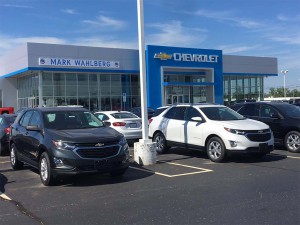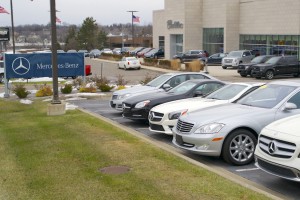
Automotive analysts are offering mixed forecast results for July. Sales for the first half of the year lagged year-ago results.
The analyst war is on! Days after Edmunds analysts forecast July sales would be up, TrueCar ALG claims automakers won’t need the party favors when they report the sales results early next month after all. However, Cox Automotive is siding with Edmunds.
True Car/ALG projected total new vehicle sales will reach 1,385,568 units in July, down 2.9% from a year ago when adjusted for the same number of selling days. This month’s seasonally adjusted annualized rate (SAAR) for total light vehicle sales is an estimated 16.6 million units.
If fleet sales are backed out of the estimate, U.S. retail deliveries of new cars and light trucks are forecast to slide to 1,185,092 units, a decrease of 5.2% from a year ago when adjusted for the same number of selling days.
“Despite buoyant market fundamentals, auto sales are being pulled back by lower incentives,” said Oliver Strauss, chief economist for ALG, a subsidiary of TrueCar. “SAAR however has fluctuated in 2019 more than in previous years, pointing to some uncertainty about the remainder of the year.”
(Edmunds Analyst Predicts Small Auto Sales Increase in July)
TrueCar noted it’s not all doom and gloom for U.S. sales. Hyundai had a strong month, up 6.2%. Trends on the TrueCar platform indicate that Hyundai is increasingly winning over new car buyers who are cross-shopping other brands, particularly buyers who are also considering Toyota and Subaru models.
Having a slew of new sport-utility vehicles, such as the Palisade, Avenue and Kona certainly helps the South Korean automaker’s cause with buyers, who are buying up SUVs at record-setting levels.
Conversely Cox Automotive is forecasting July U.S. auto sales volume to finish at 1.38 million, rising 0.5% from last year, or about 7,000 units. Those figures are basically the same as Edmunds. Both companies results are adjusted for the reduced number of selling days.
“Strong consumer confidence and employment gains are supporting stable demand for light vehicles,” said Charlie Chesbrough, senior economist, Cox Automotive.
“However, affordability issues continue to weigh on the market. The estimated average transaction price for a new light vehicle in the U.S. is $37,285 in the most recent Kelley Blue Book report, and we do not see this number coming down.”
(Hyundai Reveals Aggressive U.S. Growth Plans Based on SUVs)
Through the first half of the year, sales were down 2.2%, or nearly 200,000 units. Fleet sales, both commercial and rental, have kept the industry within shouting distance of the previous year’s results, Cox noted.
They are likely to remain strong through the year. Retail purchasing and leasing activity was down in the first half of this year, extending the trend from 2018, as consumer activity slows due to affordability concerns.
TrueCar’s numbers suggest that some of that just-mentioned affordability isn’t coming from incentives. Automaker average incentive spend will reach $3,671, down 2.6% or $97 dollars year-over-year, and down 4% or $151 from June 2019.
The most notable declines in incentive spend will come from Kia, down 17.8%, Toyota, down 9.3%, and Subaru, down 9.1% year-over-year. Meanwhile Honda raised incentives by 4.2% and BMW by 3.4%.
Average transaction price (ATP) should continue to rise, up 2.7% or $897 year-over-year. Incentives as a percentage of average transaction price are expected to be 10.8%, down 5.1% from a year ago and down 2.8% from June 2019.
(AutoNation Names Second CEO in Four Months)
“With a tightening of consumer demand and automaker incentives, savvy car buyers are likely holding out in anticipation of better deals or widening their consideration set to get the most value,” said Eric Lyman, chief industry analyst at ALG. “Hyundai has been a prime example of this trend, they’ve been able to capture sales in a declining sales environment by attracting shoppers from other brands.”


